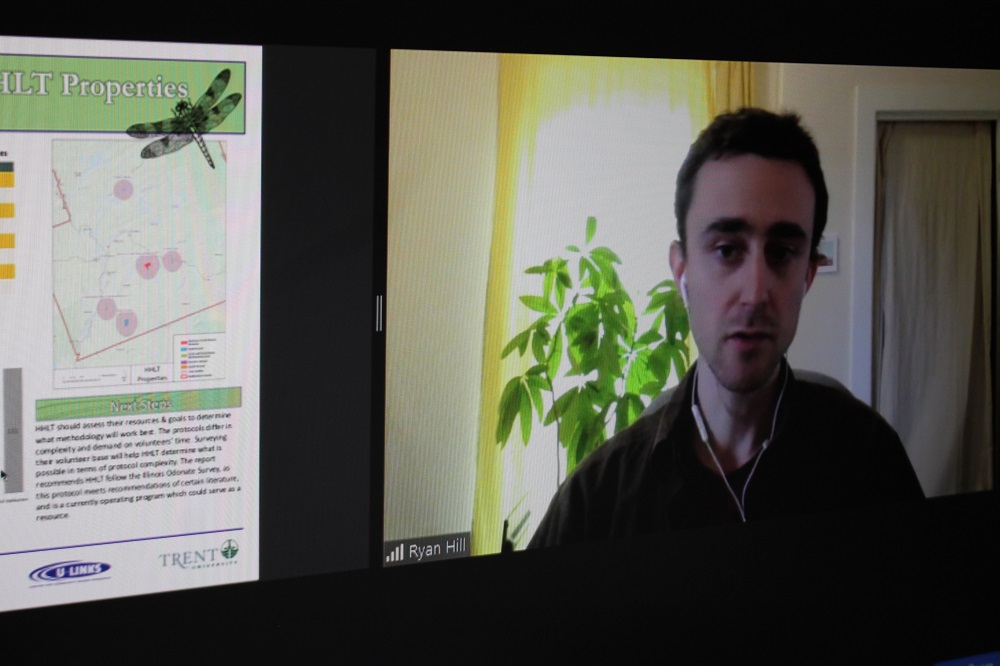Finding a way for the Haliburton Highlands Land Trust (HHLT) to monitor dragonflies and damselflies on its properties caught the interest of student Ryan Hill, who partnered with the Land Trust for his U-Links research project.
Hill was one of a number of students who presented their work at the U-Links virtual celebration of research March 27.
“Basically, they were interested in beginning the first steps for starting their own monitoring program for dragonflies and damselflies,” Hill explained in one of the breakout rooms.
He said his work focused around finding what had been seen on and around their properties; what species would be possible to see; what monitoring protocols are out there; and what recommendations he could make for them starting their own program.
Hill said he concluded, “If HHLT had the resources, the best approach would be to use a program similar to the Illinois (dragonfly and damselfly) survey which uses a protocol that was developed for monitoring butterflies.”
The Land Trust’s Greg Wickware complimented Hill for his “great work.” He added, “The HHLT has many volunteers who are interested in participating in our long-term monitoring program. Training the volunteers will be a top priority.”
ULinks program coordinator, Amanda Duncombe-Lee, said themes of environmental stewardship and sustainability featured in this year’s U-Links projects.
“While the COVID-19 pandemic has been dominating the news and our thoughts, it’s especially important to maintain our focus and commitment to environmental monitoring, research and advocacy,” she said.
The more than 100 people heard numerous presentations, including Samantha Dunlop, who worked with The Land Between on biodiversity planning and protection. She looked into municipal policies.
Mystaya Touw spoke on shoreline stewardship, using the Love Your Lake program as a case study. She said concerns included water quality, septic systems, blue-green algae, invasive species and development. She said one impediment was limited time at the cottage, but said that could be countered by focusing on ‘no mow’ lawns and natural regeneration.
There was also a Benthic Program Overview by Kiera Schweighardt and Leanne Matthews.
Samuel Duah collaborated with Abbey Gardens to look into food waste composting. He said one hinderance was the fear of attracting bears and other wildlife. He found people would support a centralized composting facility, especially if it had a drop-off centre with flexible hours.
In its 30th year, Duncombe-Lee said it was “amazing” to see the community come together every year to mark the accomplishments of students, and community partnerships.
She honoured the students for juggling full course loads and part-time jobs along with the stressors of a pandemic. She was also “proud” of staff and the U-Links management committee. She thanked the Haliburton community for its participation with Trent University and Fleming College students over the past 30 years.
Jim Blake, co-chair of the U-Links management committee, paid tribute to Leopoldina Dobrzensky during his opening remarks, calling her “our local hero of community-based research.”
See the U-Links website for more information ulinks.ca.
If you have a project idea, contact U-Links, before June 30, 2021, at admin@ulinks.ca or 705-286-2411.





